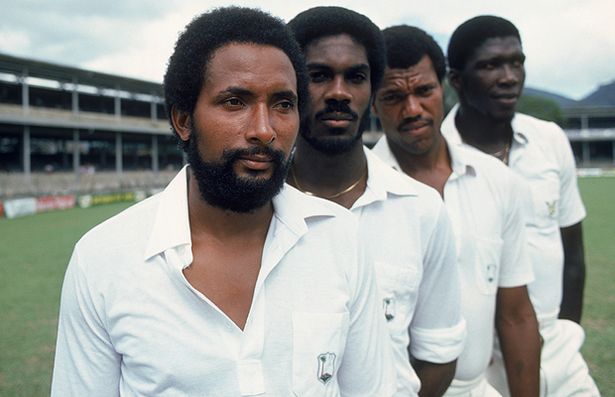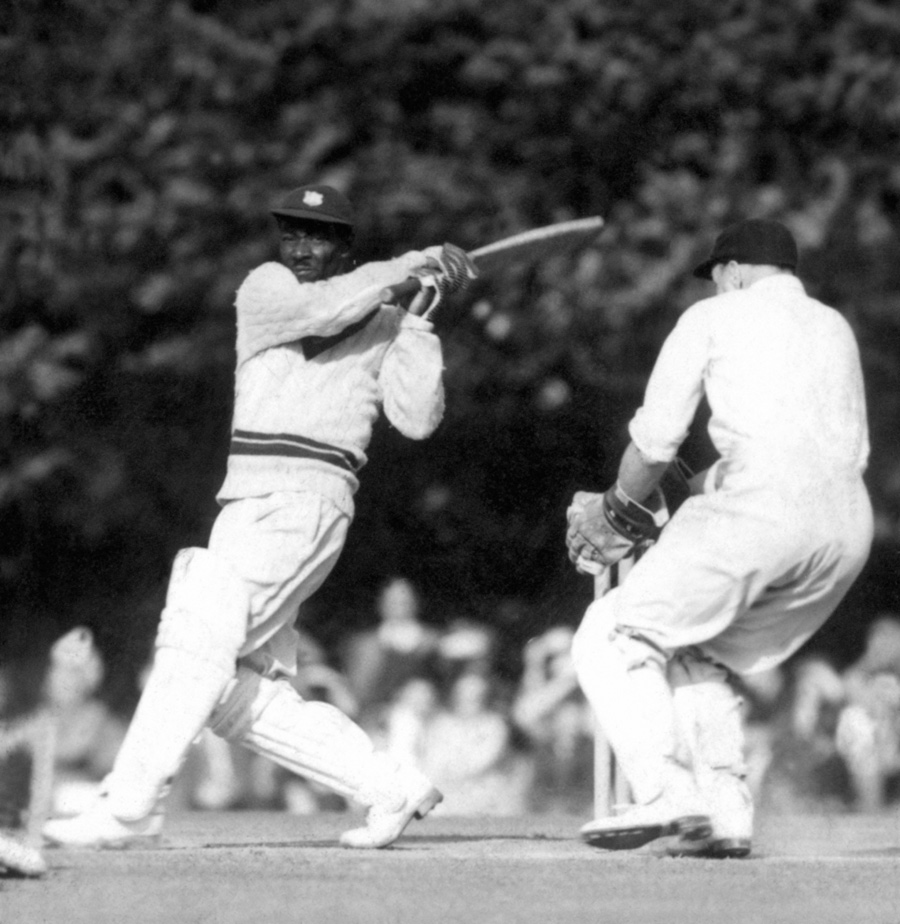
By Eron Henry
I am a West Indian cricket fan through thick and thin, keeping faith with the team even when it performs poorly. My heart gets broken by the modern team on a regular basis, but I keep hoping and believing.
A pastime of cricket fans is to pick all-time best teams. The eleven greatest from among the greats as part of an imaginary team to take the field against imaginary opponents. I, too, like to believe I can pick the best all-time first class and test cricket teams from the Caribbean. I will begin with first class territorial teams and end with what I consider the best all-time West Indies test eleven.
Such exercises are a recipe for heated disputations because the choices are often subjective, based on likes, preferences, and fond memories. I do not claim to be immune, but I would like to think I give due weight to data, which are readily available.
Territorial teams
The easiest territorial team to name is Barbados. This small island produced more international cricketers per capita and per square mile than most places on earth. A Barbados all-time eleven can challenge all-time teams from England, Australia, India and other test playing countries. It is that good. Sadly, some exceptionally good cricketers are left out, such as Seymour Nurse, Sylvester Clarke and Wayne Daniel.
Barbados: Gordon Greenidge, Desmond Haynes, Conrad Hunte, Everton Weekes, Frank Worrell (c), Gary Sobers, Clyde Walcott (wk), Malcolm Marshall, Joel Garner, Wes Hall, Charlie Griffiths
Guyana is the most difficult team to name because it is top heavy with batting. Except for Lance Gibbs and Colin Croft, the bowling attack is weak. If either or both fail or have an off day, they would be murdered by an imposing team such as Barbados or a brutal lineup like Jamaica’s. There is no wicketkeeper of standing or repute. Rohan Kanhai, who kept wicket early in his career, would have to take the gloves. The parlous bowling means Clive Lloyd, who occasionally bowled medium pace, may need to take the ball. Only one opener, Roy Fredricks, is chosen, so someone else would have to fill in. Just too many good batters and no other opener of note. Outstanding players such as Joe Solomon and Carl Hooper do not get in because enough batting is there. In the case of Hooper, Roger Harper and Clyde Butts, there are better spinners. Next to Barbados, this is the strongest batting lineup.
Guyana: Roy Fredricks, Ramnaresh Sarwan, Rohan Kanhai (wk), Alvin Kallicharran, Shiv Chanperpaul, Clive Lloyd (c), Basil Butcher, Colin Croft, Devendra Bishoo, Reon King, Lance Gibbs
Jamaica has one of the most balanced sides. The batting is ruthless. On its best day, it could destroy the best bowling attack. They have the bowling to take out any side, including the masterful Barbadians. Jamaica is blessed with outstanding wicketkeepers, including Gerry Alexander and Jackie Hendricks, but Jeffrey Dujon is at the head of the pack. Patrick Patterson deserves a place, but the bowling is just too good to have him. Besides, Collie Smith, Jimmy Adams and Chris Gayle can all chip in and rest the frontline bowlers. On balance, this is the one side that could give Barbados headache.
Jamaica: Alan Rae (c), Chris Gayle, George Headley, Lawrence Rowe, Collie Smith, Jimmy Adams, Jeff Dujon (wk), Michael Holding, Courtney Walsh, Alfred Valentine, Roy Gilchrist
Trinidad and Tobago are the most unpredictable team. They have great players who came along at the wrong time to get their due in international cricket. Charlie Davis has a batting average of 54.20 in his 15 test matches, but he was displaced during the transition of West Indies cricket under Clive Lloyd in the 1970s. Tony Gray’s test bowling average is 17.13. He took 451 first class wickets at 22.80, but he came along in the era of Malcolm Marshall, Curtly Ambrose, etc., and could not secure a permanent place in the West Indies team. T&T manufactured outstanding spinners with great regularity, but with pace ruling West Indies bowling, they found no place.
Trinidad and Tobago: Jeff Stollmeyer (c), Joey Carew, Darren Bravo, Brian Lara, Charlie Davis, Larry Gomes, Derrick Murray (wk), Gerry Gomez, Ian Bishop, Tony Gray, Sonny Ramadhin
Leeward Islands are heavily reliant on four people, Viv Richards, Richie Richardson, Andy Roberts and Curtly Ambrose. If one of the two bastmen fail, Richards or Richardson, they have a problem. If both fail, they are done. Similar, if bowlers Roberts and Ambrose have an off-color day, they are in deep trouble.
Leeward Islands: Stuart Williams, Kieran Powell, Richie Richardson, Viv Richards (c), Sylvester Joseph, Keith Atherton, Ridley Jacobs (wk), Eldine Baptiste, Winston Benjamin, Andy Roberts, Curtly Ambrose
Windward Islands are by far the weakest team. Except for Winston Davis, there is no international cricketer of outstanding achievement in test cricket. And he came along when pace bowling greats – Holding, Marshall, Garner, etc. – were in their prime, and when Ambrose and Walsh were emerging. (One of the best balls I saw bowled at Sabina Park was by Davis. An unplayable yorker that dipped viciously from a good height and headed for Jimmy Adams’ toes. He saved his toes but only succeeded in lobbing a simple catch to forward short leg). The Windwards would be hard pressed to compete with any of the other five territorial teams.
Windward Islands: Devon Smith, Johnson Charles, Andre Fletcher, Lockhart Sebastian, Irvine Shillingford, Mike Findlay (wk), Darren Sammy (c), Norbert Phillip, Winston Davis, Adam Sanford, Cameron Cuffy
All time test eleven

And now for my all-time West Indies test eleven. With all due respect to Derrick Murray and Jeffrey Dujon, the easiest position to choose is wicketkeeper. Clyde Walcott has no competition. His batting averages are just too good, and reports are he was decent with the gloves. The bowling is the hardest to choose because there would be legitimate outcries if any of the greats of the 70s and 80s is left out. But we can choose only four bowlers. Sobers is already there as an allrounder who bowls spin and medium pace. One wonders how one could leave out Everton Weekes, but the batting is too rich. He is not an opener, or else he would partner Gordon Greenidge. But either of Conrad Hunte or Desmond Haynes must be there as an opener. In the middle, Headley and Sobers are automatic choices, and, despite his superlative average, it is hard to pick Weekes over Richards or Lara.
All-time West Indies eleven: Gordon Greenidge, Conrad Hunte, George Headley, Brian Lara, Vivian Richards, Gary Sobers (c), Clyde Walcott (wk), Malcolm Marshall, Michael Holding, Curtly Ambrose, Lance Gibbs.
For the heck of it, I choose a second test eleven. Too many good players are left out of the first.
Second West Indies eleven: Desmond Haynes, Roy Fredricks, Everton Weekes, Frank Worrell (c), Shiv Chanperpaul, Clive Lloyd, Jeff Dujon (wk), Andy Roberts, Joel Garner, Ian Bishop, Wes Hall
I know, I know. It seems a sin to leave out Courtney Walsh and to put Ian Bishop ahead of him. But a back injury cut short Bishop’s international playing career at just 30 years old while he was up there as one of the best fast bowlers ever. It was a tossup between Chris Gayle and Roy Fredricks, but the latter got the nod for his skill and fearlessness. The only man I can recall hitting a bouncer for six. (His audacity cost him. He trampled on his wicket while hitting the six and was given out). That Kanhai or Kallicharan cannot make the second eleven says how good West Indies batting was for roughly 40 years, from the mid-fifties into the mid-1990s.
It says something that no bowler or wicketkeeper of the last 15 years merit serious consideration. And only Lara, Chanderpaul and Gayle as batsmen come into the conversation to be part of any all-time West Indies teams.
Eron Henry is an ordained minister, public speaker, writer, editor and traveler. He is principal of the communications consultancy, Eron Henry & Associates. His novel, Reverend Mother, is available on Amazon. He can be reached at eronhenry2@gmail.com